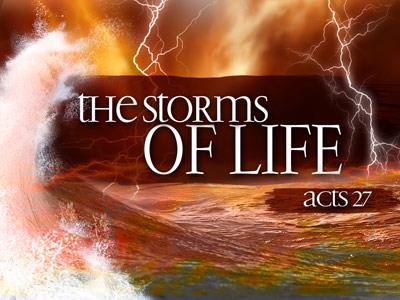-
When Hope Seems Gone Series
Contributed by Dale Pilgrim on Nov 28, 2017 (message contributor)
Summary: Despair makes hope seem an empty dream as we snap awake to reality and we begin to believe the lie, “there's no way out.”...Our lesson today is one of “how” and “what”. “How” can I move from a spirit of despair to a life of hope?
DARE TO BELIEVE – “When Hope Seems Gone”
Jonah 2:1-10
This picture (person sitting against a wall, very dark room, small light in the window) is, to me, a powerful image of despair. It creates a sense of aloneness where an overwhelming gloom settles into your spirit and there's no life or energy to move from where you are. Everything is not completely dark; there's some light but not enough to forget the darkness.
Despair makes hope seem an empty dream as we snap awake to reality and we begin to believe the lie, “there's no way out.”
In those times God provides a way out or a way through those situations. At first I labelled this topic “When hope is gone”. I changed it to “When hope seems gone” – hope is never gone! Job is an example of this truth. He's a man in the Bible whose seven sons and three daughters were killed in one day. In a matter of days he lost his livelihood and his life amounted to a frail scab-sore frame sitting in the rubble of the city dump. Listen to what he says about his lessons in despairing situations. Job 5: 8-11, "My advice to you is this: Go to God and present your case to him. For he does great works too marvelous to understand. He performs miracles without number. He gives rain for the earth. He sends water for the fields. He gives prosperity to the poor and humble, and he takes sufferers to safety…”
Jonah was another man who was well acquainted with despair. He too offers some wonderful lessons on dealing with this unwelcome guest. Like Jonah you may have created your despairing situation. Or you may be like Job so that you didn’t create your reality and it was forced on you by other's choices and decisions. The lesson teaches, among other things that there's no value in pointing fingers and casting blame. That doesn’t change anything. Our lesson today is one of “how” and “what”. “How” can I move from a spirit of despair to a life of hope? “What” are my choices, my options? “What” can I do to experience a different reality to the current one?
Let’s see what Jonah’s story teaches us. We must of course understand the background of how things ended where they did for Jonah.
1. Jonah’s complacency to God’s commission
A commission is a powerful and sacred obligation. It is a symbol of relationship between two or more people, an act of trust and complete dependence of one on another to achieve certain aims. Often there’s no backup plan.
God commissioned Jonah. Let’s read what happens: Jonah 1:1-3a…
(Background) – Nineveh was the capital city of Assyria. Assyria was a strong and brutal nation, being the great enemies of God, of Israel. Assyria plundered, raped and enslaved the Israelites. It is to these that God told Jonah he should tell them of their sins that they may repent and receive God’s favour and blessing. The natural, human side of us can understand Jonah’s reluctance and resistance to helping the enemies of his people. Long before Jesus said in Matthew 5:44, “Bless those who curse you, do good to them that hate you” he practiced what he preached! Jonah was struggling. Look at how he responds to God’s instructions: Jonah 1:3b-6a…
“How can you sleep?” … logical perspective is the storm. We saw a couple of weeks ago the disciples asking Jesus the same question as he slept soundly in the boat during a huge storm. What a strange paradox. Jesus, completely at peace and security with Father’s will, slept. Jonah, on the run from God and justifying his neglect, slept. We have reason to believe Jonah stopped praying. He stopped communicating with God. He stopped caring about what God wanted. He was so completely consumed with how he felt and what he thought was justice in this situation that he focused completely on his own feelings and perspective.
(Compare God’s instruction to Jonah with Jesus’ instruction to his disciples). Sounds strangely familiar to Matthew 28:19...
I am convinced that as much as we have a corporate responsibility to this commission, it was given to people first, not an organization. Jesus didn't command a church with this commission, he commanded a people – his people. Every person who say they follow Jesus has the unique, individual, personal responsibility to tell other people about the alternative to their current realities of life away from God, that being, life with God! In some respects we’re doing well with this responsibility. In other ways I’m concerned that we’re not praying, we’re not communicating and we’ve stopped caring. I’m concerned that we’re complacent with the commission. I’m concerned that we are sleeping.
The question, “how can you sleep?” should haunt us if we can live with ourselves and at the same time avoid God and his Commission. “How can you sleep?” We can sleep because we have the spine-chilling ability to believe anything we want in the interest of self-will. Jonah shared an important insight from his experience in the whale – 2:8a… – the ‘idol’ here is self-will and justification. Self-will becomes the whale that swallows our potential, our purpose and our awareness of God’s purposes for us and we end up settling for the lesser option that is often dark and despairing.

 Sermon Central
Sermon Central



